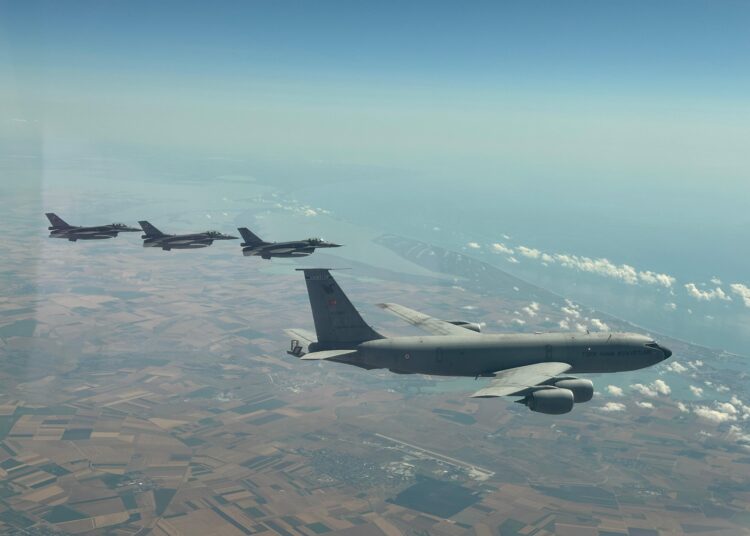Levent Kenez/Stockholm
Turkey’s struggle to modernize its armed forces, hampered by sanctions, procurement delays and domestic political interference, has sparked growing concern among military analysts. The recent Israeli strike on Iran has revealed Ankara’s vulnerabilities, raising new questions about its deterrent capabilities.
President Recep Tayyip Erdogan has paid tribute to domestically produced military drones, Altay tanks and the KAAN fighter jet and frequently frames them as evidence of Turkey’s self-sufficient military prowess. Yet multiple flagship programs remain undermined by technical bottlenecks, political biases and sanction-hit supply chains.
Turkey’s air force continues to rely heavily on an aging fleet of F-16 fighter jets. Most of the aircraft, originally delivered in the 1980s and early 1990s, are in urgent need of upgrades. Ankara has requested 40 new F-16 Block 70 fighters from the United States. Although the administration of former US president Joe Biden gave tentative approval following Ankara’s ratification of the NATO accession of Sweden, the US Congress has yet to finalize the deal. Turkish officials say the delays are impairing the air force’s combat readiness.
Ankara is also lobbying for re-entry into the US-led F-35 Joint Strike Fighter program, from which it was expelled in 2019 following the purchase of Russian S-400 missile systems. Erdogan claimed after the recent NATO summit in The Hague last week that US President Donald Trump had responded positively to renewed dialogue.
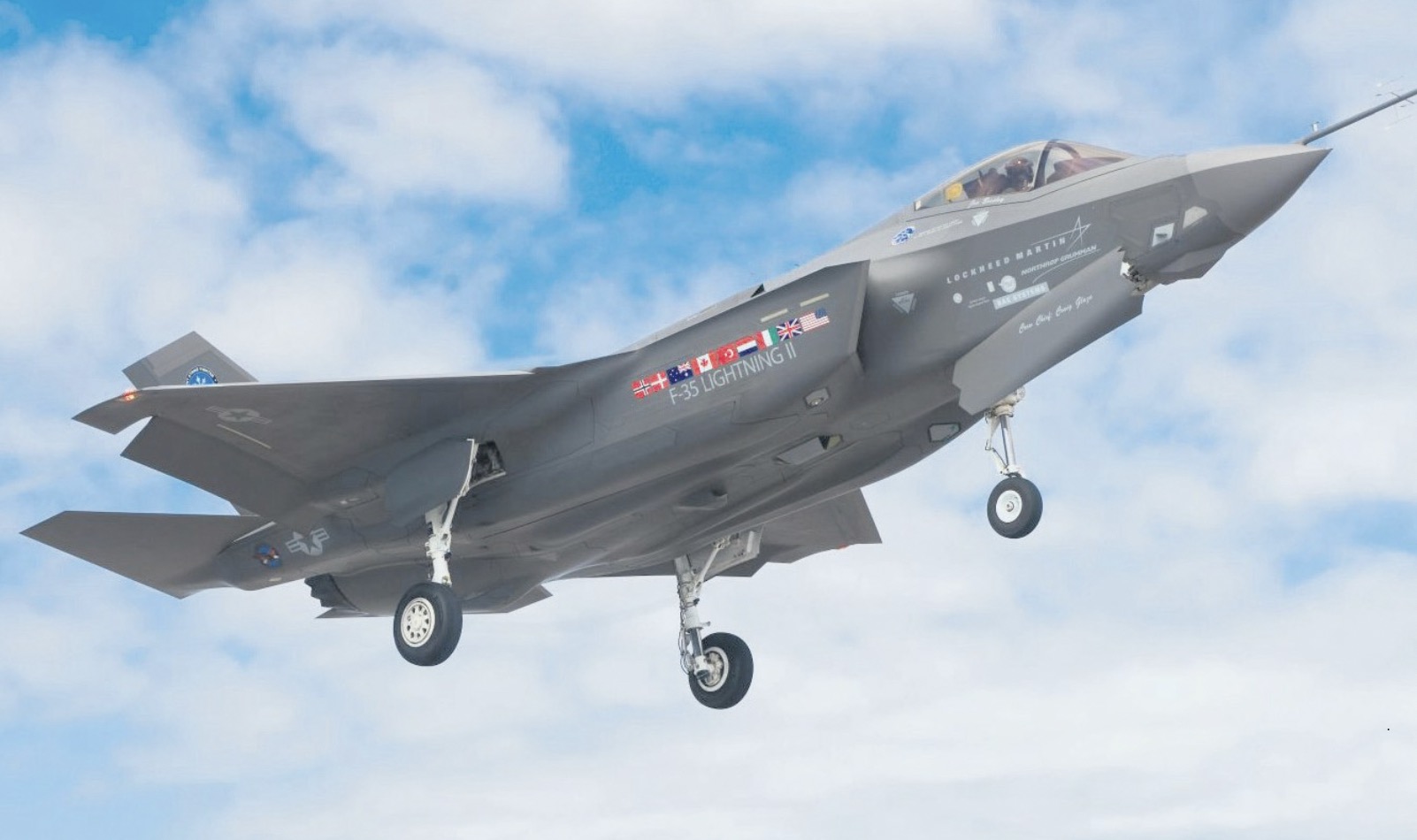
U.S. Ambassador to Turkey and Special Envoy for Syria Tom Barrack expressed optimism about resolving the defense-related tensions between Washington and Ankara, including issues related to the F-35 program and sanctions imposed under the Countering America’s Adversaries Through Sanctions Act (CAATSA).
Speaking to Turkey’s state-run Anadolu news agency on June 29, Barrack said, “In my view, President Trump and President Erdogan will tell Secretary [Marco] Rubio and Foreign Minister [Hakan] Fidan to ‘Get it done, find a way.’ Congress will support a reasonable outcome. Therefore, I believe there is a real chance of reaching a solution by the end of the year.”
Meanwhile, Turkey has initiated talks with the United Kingdom, Spain and Italy to potentially acquire Eurofighter Typhoon jets. Germany, the other production partner, remains hesitant, citing political tensions over Turkey’s domestic policies and previous human rights criticism. However, according to recent reports in the Turkish media, Germany has softened its stance, and with the Social Democratic Party — part of the ruling coalition — ending its opposition, the likelihood of approving the sale has increased.
Turkey’s indigenous fifth-generation fighter jet, the KAAN (formerly TF-X), made its first taxi tests earlier this year. However, the program faces significant hurdles, chief among them the engine.
The prototype currently uses General Electric’s F110 engine, but domestic replacements under development by Turkish Engine Industries (TEI) are not yet flight-ready. Rolls-Royce engines have also been considered, though negotiations remain inconclusive.
KAAN is not expected to enter the Turkish Air Force inventory before 2035 at the earliest, and that timeline remains contingent on the program progressing without major delays. As the platform has not yet completed qualification tests, its ability to meet operational requirements remains uncertain. While structural development continues, the aircraft still relies on foreign engines, indicating ongoing limitations in domestic propulsion capabilities.
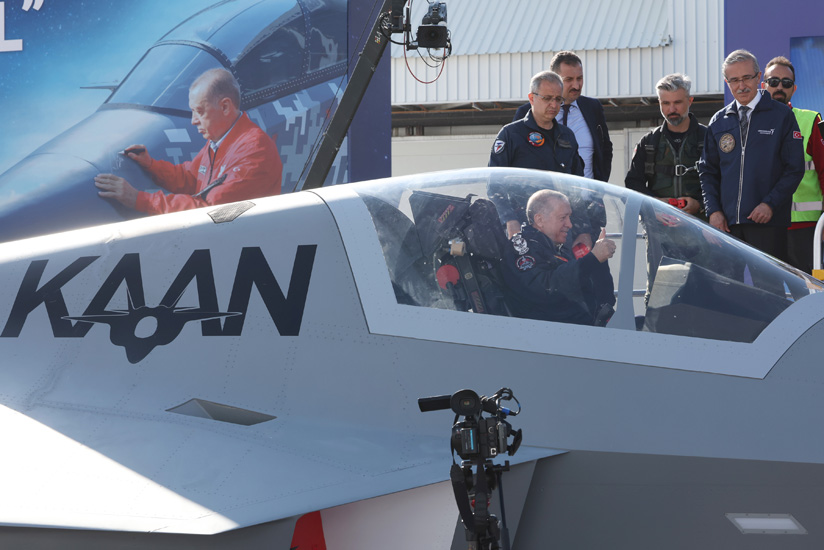
Another concern is the shortage of qualified pilots. Following s controversial coup attempt in 2016, the Erdogan government dismissed or arrested thousands of air force personnel on fabricated charges, including more than 600 seasoned fighter pilots. The resulting vacuum has not been fully filled. Turkey is likely operating with bare-minimum ratios, possibly under 1.2 pilots per aircraft due to pilot shortages, while the Turkish Air Force fields roughly 295 aircraft. Ideally, this ratio should be at least 1.5 to 2 pilots per aircraft to allow for adequate rest, training and rotation without overburdening the pilots. Operating below this threshold risks reduced effectiveness and increased strain on personnel.
While new pilot training programs have been implemented, experience levels in the Turkish Air Force remain critically low, with military sources noting that developing a seasoned F-16 pilot typically takes more than a decade, an outcome that cannot be accelerated through political measures.
Turkey is also working on its own new long-range air defense project called Steel Dome, but it remains in the early development stages. Nordic Monitor previously reported that the S-400 long-range missile system purchased from Russia is not part of the project. To fill the gap Turkey is in talks to purchase the Franco-Italian SAMP/T missile system. President Erdogan reportedly asked French President Emmanuel Macron for support during the last NATO summit.
The total cost of the Russian-made S-400 air defense system purchased by Turkey is estimated at approximately $2.5 billion, part of which was paid upfront to Moscow. Turkey ultimately did not proceed with the planned procurement of a second batch of missiles and batteries, a decision widely interpreted as an attempt to avoid further straining relations with the United States.
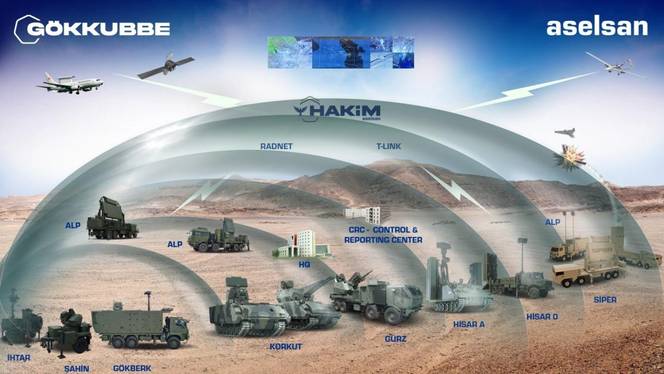
Analysts are also warning of a decline in officer quality across the Turkish Armed Forces. Following the post-2016 purges, requirements for becoming a staff officer were eased, raising concerns about military professionalism. A new regulation passed last month by parliament allows Erdogan to directly influence the promotion timeline of senior officers. Critics argue that this undermines meritocracy and increases political interference in the chain of command, creating a loyalty-based hierarchy rather than a capability-based one.
The Altay main battle tank, a linchpin of Turkey’s national defense strategy, has been beset by repeated setbacks. Ankara signed a production deal with BMC in November 2018 to manufacture 250 T1 tanks. Initial deliveries were slated for late 2019. Instead, only two prototypes reached Turkey’s inventory in 2023, with serial production postponed until 2025 and full-scale deployment stretching into the late 2020s.
The program’s engine dependency intensified after German supplier MTU withdrew support amid embargoes triggered by Turkey’s Syria operations. In response Turkey secured a deal to import Hyundai-Doosan’s 1,500 horsepower powerpacks from South Korea. But those units have yet to meet local performance and integration standards, and the domestically developed “Batu” engine remains years from service.
Critics argue political favoritism skewed the tender process. BMC reportedly secured the contract over Otokar and its German engines because of its ties to President Erdogan and allied businessmen, including Ethem Sancak, leading to accusations that the project prioritized cronies over competence. Production once based in Karasu was later relocated to Arifiye after concerns that the initial site was unsuitable, possibly due to land value-driven motives.
Former defense officials say the pattern has weakened the Turkish Armed Forces’ armored capability rather than bolstered it. Though plans project deliveries of three tanks in 2025 and up to 85 in the T1 configuration over the following three years, the delay has erased any near-term boast of homegrown tank strength.
One of the obstacles to strengthening Turkey’s defense is the country’s current economic situation. With the Turkish lira having lost significant value against the US dollar over the past year, importing defense hardware has become even more expensive. Although Erdogan has pledged to increase defense spending to 2.5 percent of GDP by 2027, most major systems, including engines, electronics and radar systems, still depend on foreign suppliers.
In October 2024 the Turkish government had planned to introduce a new bill in parliament that would have imposed an annual Defense Industry Fund levy of 750 TL ($22) for individuals with a card limit of 100,000 TL ($2,923) or more. Finance Minister Mehmet Şimşek emphasized that Turkey was located in a challenging region and needed to strengthen its deterrence capabilities. Şimşek argued that additional funding was necessary for defense industry projects, particularly for the construction of Steel Dome and the production of KAAN. However, following significant public backlash, the proposal was postponed until 2025.
No official statement has been made by the government regarding the reintroduction of this bill.

